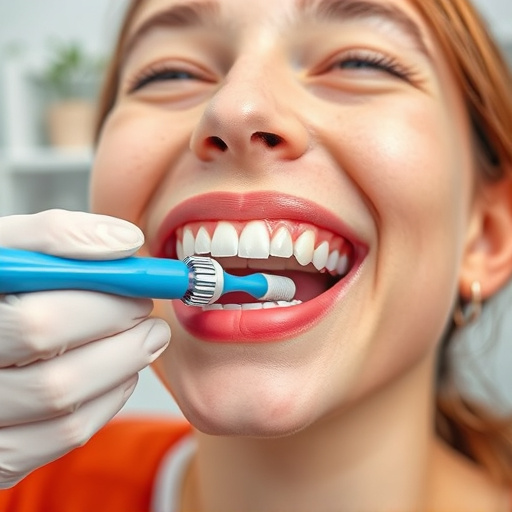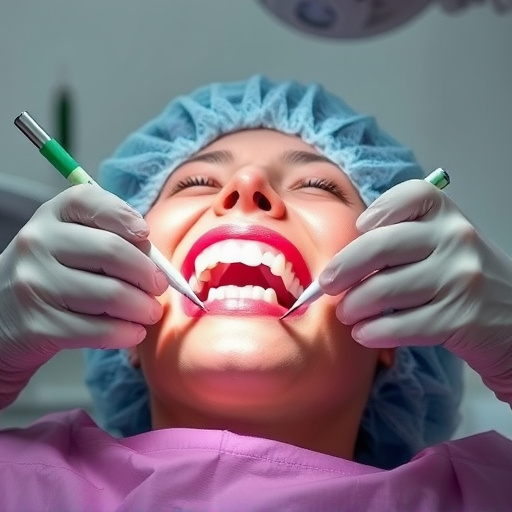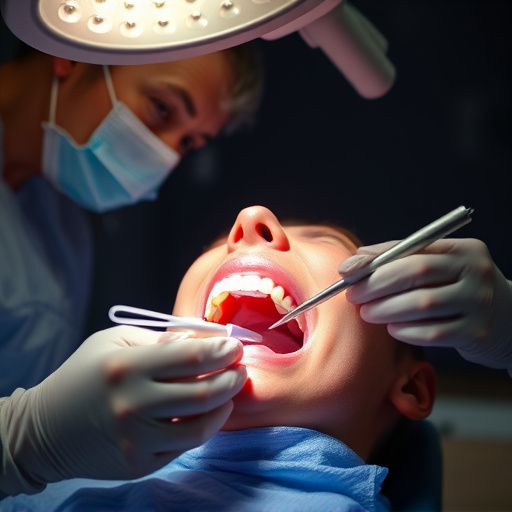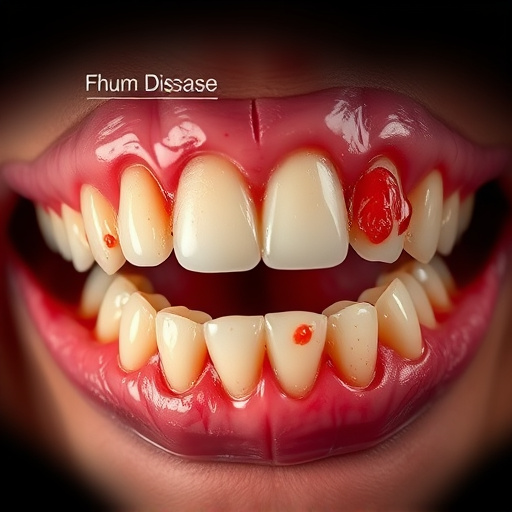Oral hygiene education from a young age is key to preventing tooth loss and promoting overall well-being. General dentistry professionals can significantly reduce the risk of cavities, gum disease, and emergency dental care needs by teaching proper brushing and flossing techniques. This proactive approach saves time and money, ensures healthier smiles, and improves quality of life. Early education, modeling behaviors for children, comprehensive dental care, and integrated oral hygiene practices are crucial in preventing tooth loss and promoting long-term oral health.
Tooth loss can have profound impacts on overall health and quality of life. Understanding and promoting proper oral hygiene education early is key to preventing this issue. This article delves into the significance of oral hygiene in tooth loss prevention, exploring effective strategies for both children and adults. We discuss early education methods to build a foundation for healthy teeth and offer tips for fostering lifelong oral care habits. By embracing these practices, we can safeguard our smile and overall well-being.
- Understanding the Impact of Oral Hygiene on Tooth Loss Prevention
- Building a Solid Foundation: Early Education Strategies for Healthy Teeth
- Promoting Lifelong Habits: Tips for Continuous Oral Care
Understanding the Impact of Oral Hygiene on Tooth Loss Prevention
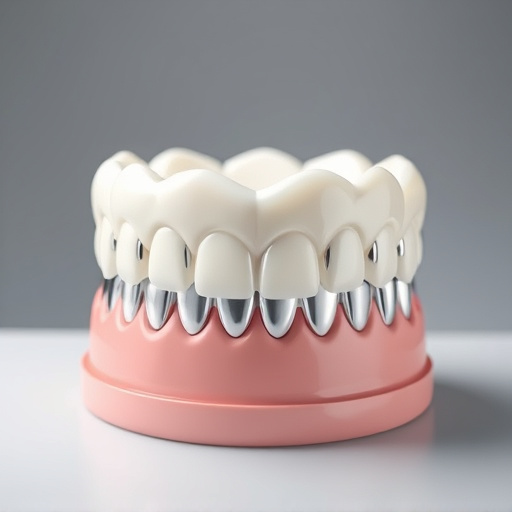
Oral hygiene plays a pivotal role in preventing tooth loss, which is why early education on this subject is so vital. It’s not just about teaching children to brush their teeth; it’s about instilling a lifelong habit of proper oral care. General dentistry professionals agree that regular and thorough brushing, along with flossing, significantly reduces the risk of cavities, gum disease, and ultimately, tooth extractions. By incorporating these practices from a young age, individuals can enjoy healthier smiles and avoid frequent visits to emergency dental care services.
Understanding the importance of oral hygiene education is key in tackling dental issues proactively. It empowers people to take charge of their oral health, leading to fewer complications and less need for invasive procedures like tooth extractions. This proactive approach not only saves time and money but also ensures a higher quality of life, as a healthy mouth contributes significantly to overall well-being.
Building a Solid Foundation: Early Education Strategies for Healthy Teeth
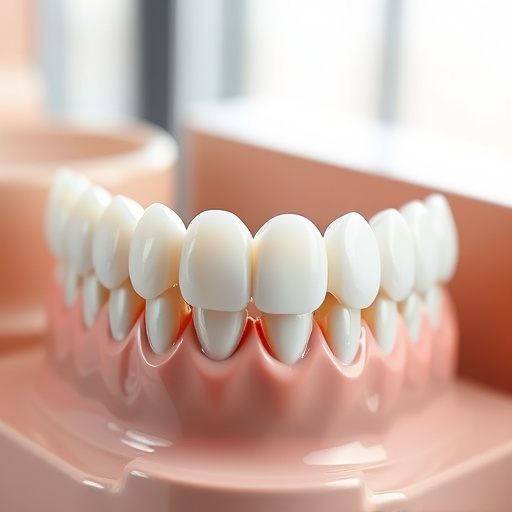
Building a solid foundation for oral health begins with early education. Introducing children to proper brushing and flossing techniques at a young age sets them up for a lifetime of good habits. Parents and caregivers play a crucial role in modeling these behaviors, ensuring that kids understand the importance of maintaining clean teeth and gums. Regular routine oral exams become second nature when started early, allowing for prompt addressing of any issues before they escalate.
Comprehensive dental care involves not just cleaning but also educating on diet, tooth-friendly habits, and the negative impacts of neglecting oral hygiene. By integrating these teachings into daily routines, parents can significantly reduce the risk of caries, gum disease, and eventually, tooth extractions. Early education equips individuals with the knowledge to take charge of their dental health, fostering a sense of responsibility that carries them through adulthood.
Promoting Lifelong Habits: Tips for Continuous Oral Care
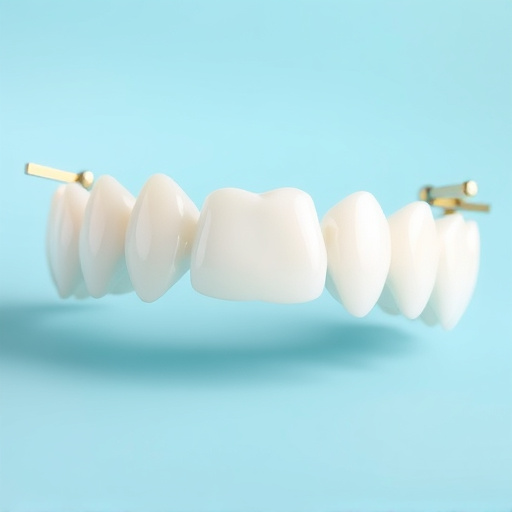
Early oral hygiene education plays a pivotal role in promoting lifelong healthy habits. This foundation is crucial for preventing tooth loss and ensuring long-lasting oral health. By teaching children and adults alike the importance of regular brushing, flossing, and dental check-ups from a young age, we empower them to take control of their oral care routine. Simple yet effective daily practices such as using fluoride toothpaste, replacing toothbrushes every three to four months, and maintaining a balanced diet low in sugar can significantly reduce the risk of tooth decay and gum disease.
Incorporating these habits into daily routines fosters independence and self-care. As children grow, they become more responsible for their oral hygiene, setting them up for success as adults. For those who may have experienced dental issues or require restorative dentistry like dental crowns, maintaining excellent oral hygiene becomes even more critical to prevent further complications. Family dentistry professionals can guide patients on personalized oral care plans, ensuring that every member of the family receives proper oral hygiene education tailored to their needs.
Early oral hygiene education is a powerful tool to prevent tooth loss, fostering lifelong healthy habits. By implementing effective education strategies and promoting continuous care, we can ensure better dental health outcomes for individuals of all ages. Oral hygiene education empowers folks to take control of their dental well-being, ultimately reducing the risk of tooth loss and enhancing overall quality of life.








